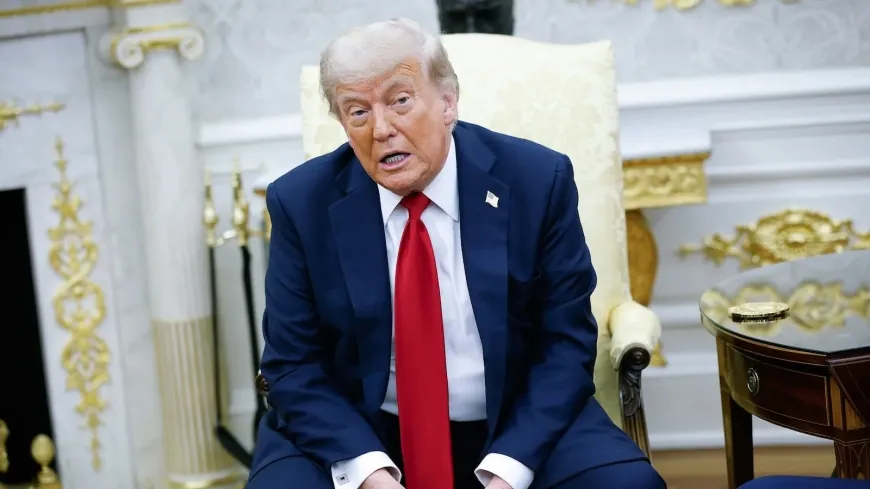Trump Plans Heavy Sanctions on Russian Oil if NATO Agrees
President Trump says heavy sanctions on Russian oil will be imposed only if NATO nations coordinate, aiming to pressure Moscow over the Ukraine war.

Key Points
US President Donald Trump announced Saturday that he is ready to implement significant sanctions on Russian oil, but only if NATO allies coordinate similar measures. The statement comes a day after Trump expressed frustration with Russian President Vladimir Putin’s continued aggression in Ukraine.
Posting on his Truth Social account, Trump wrote that sanctions would move forward “when all NATO nations have agreed, and started, to do the same thing, and when all NATO nations stop buying oil from Russia.” He emphasized that full alliance cooperation would strengthen Western leverage against Moscow.
The announcement aligns with US efforts to pressure the Group of Seven (G-7) to take coordinated action. Reports indicate that Washington intends to urge G-7 members to impose tariffs of up to 100% on China and India for continuing to purchase Russian oil. The strategy aims to restrict Russia’s oil revenues, which finance its military operations in Ukraine.
Trump criticized some NATO members for continuing to buy Russian oil, saying it “greatly weakens your negotiating position and bargaining power over Russia.” He also suggested that imposing tariffs on China could further pressure Moscow, stating that such coordinated economic action could help bring an end to the war.
Imposing heavy sanctions on Russian oil faces significant hurdles. Not all NATO and G-7 members can immediately comply, as countries like Germany, Hungary, and Italy still rely on Russian crude for a large portion of their energy needs. Any sanction package would require full agreement among alliance members, making immediate implementation unlikely.
Trump’s announcement highlights his strategy to use economic measures as leverage against Russia. The plan includes high tariffs on Russian oil, potential penalties on banks that handle Russian transactions, and restrictions targeting financial channels that fund Moscow’s military operations.
The sanctions come as the war in Ukraine surpasses its third year, keeping global energy markets on edge. Analysts warn that coordinated Western action could tighten global oil supply, push up crude prices, and alter international trade flows. Policymakers and investors are watching closely, as the effectiveness of these measures could directly influence Russia’s willingness to negotiate a resolution to the conflict.
Also Read: US Pushes G-7 to Sanction Russian Oil Buyers as Trump Warns of Heavy Tariffs































































